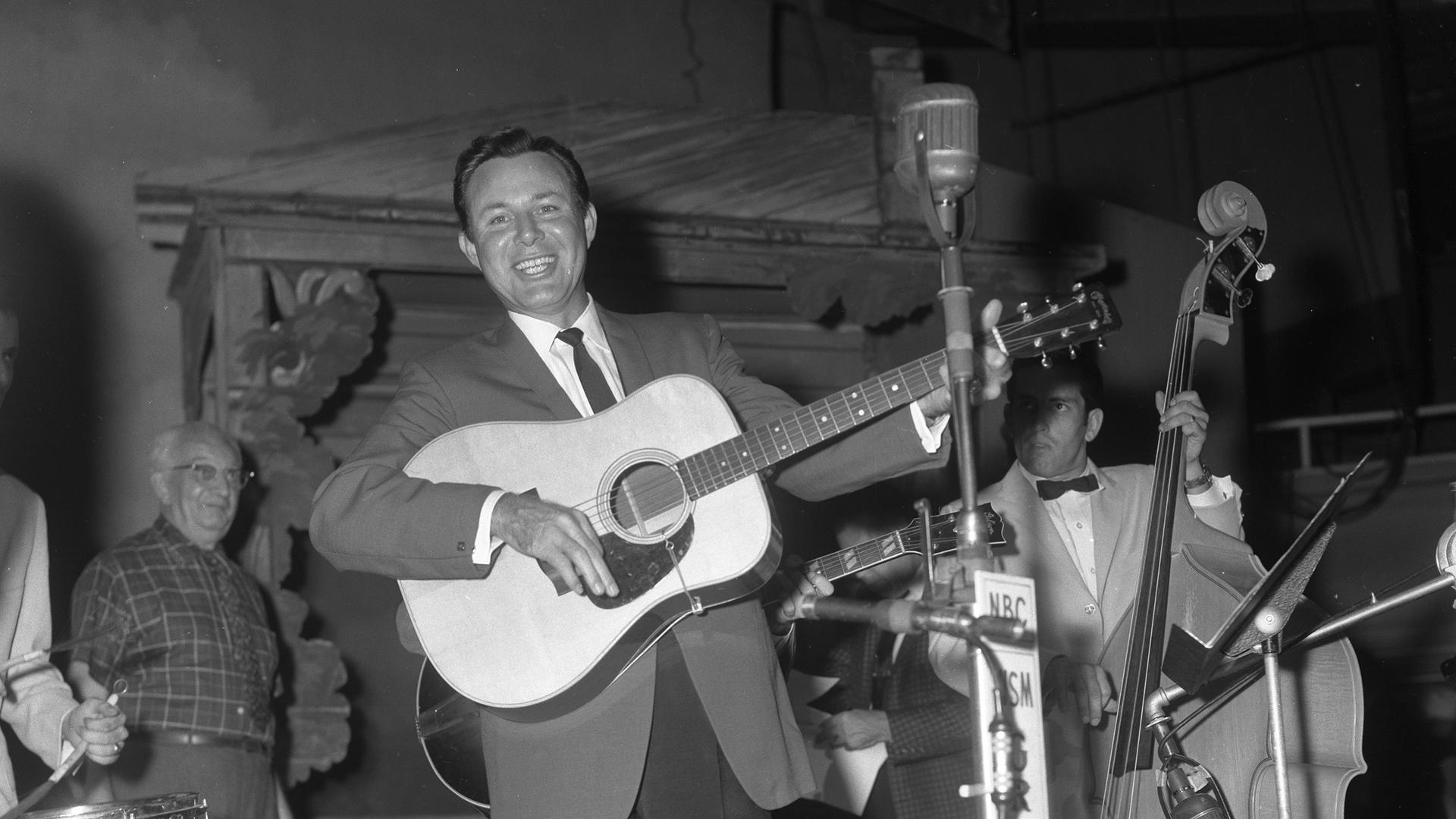Why American country legend Jim Reeves endures … in Nigeria
Jim Reeves on the Grand Ole Opry, September 3, 1960.
Over 50 years after his death, American country music legend Jim Reeves has maintained his popularity to a truly remarkable extent. Up until the 1980s, his label RCA continued to release new records almost yearly, and his many fans would eagerly snap them up on vinyl or cassette tape.
Even today, his importance is still hotly discussed online, in message boards and chat rooms, while his songs are listened to and downloaded on mp3. More amazing? Reeves' popularity is in the West African nation of Nigeria.
Few musical forms appear more quintessentially American than country. But despite its deep ties to the cowboys and open skies sector of our national mythology, the genre has long found popularity around the world. Starting in the 1930s and '40s when records by performers like Jimmie Rodgers were imported to foreign markets, nations like South Africa and Nigeria became entranced by the fiddle- and yodel-heavy music. By the 1960s, as Nashville-based performers like Reeves and his producer, Chet Atkins, moved country toward an increasingly slick sound, the genre had become a part of everyday Nigerian life, where it has remained.
oembed://https%3A//www.youtube.com/watch%3Fv%3Dqit_HikDGxU
In Africa's most populous nation, country isn’t really considered a stand-alone genre. Instead, it was listened to as part of what was called “sentimental” music, a catch-all category that essentially referred to everything Western that wasn’t dance music. Nat King Cole, Louis Armstrong, Jim Reeves — they were all heard in much the same way. Yet unlike Cole or Armstrong, people still listen to Reeves in everyday life.
You could hardly pick a more unlikely star for Nigeria. Reeves, a former minor-league pitcher for the St. Louis Cardinals, began as a radio announcer in the American South. When an act failed to show for a musical revue in Louisiana, Reeves sang instead, and hits like "Bimbo,'' "Mexican Joe,'' "Across The Bridge" and "Adios Amigo" followed. He began singing softer, lower, with violins in the background, on "Four Walls,'' a song that helped change the raucous country and western approach for a smoother Nashville sound. His most popular song was "He'll Have To Go,'' a No. 1 hit for 14 weeks in 1960, which he had sung in a velvety baritone. By the early 1960s, Reeves was more popular in South Africa than Elvis Presley.
To this day, Reeves' recordings are still music for comfort and for family in Nigeria — while cleaning houses, making lunch, or getting ready for church. The songs charted in the US, too, even a decade or two after the Texas-born singer's death in a private airplane crash in july 1964.
According to Uchenna Ikonne, an expert on Nigerian musical culture, this continued popularity can be at least partially attributed to the spiritual qualities that Nigerian audiences hear in country.
Too slow to work as dance music, filled with the otherworldly sounds of pedal steel and orchestral strings, and laced with a decidedly Christian morality, country music became known as a contemplative style, designed to carry the listener beyond daily life. “Despite the fact that they were singing, ‘You done left me and now I’m drinking,’" Uchenna says, “people really felt that there was something about that music that was beyond sensual concerns.”
Reeves and fellow deep country crooner Don Williams influenced scores of Nigerian musicians, such as singer Emma Ogosi, highlife star Stephen Osadebe and synth funk artiist Williams Onyeabor, Uchenna says.
oembed://https%3A//www.youtube.com/watch%3Fv%3DL-FYGjhwo40
When trying to understand just how pop music makes its way around the world, the first step is to leave all preconceptions at the door, Uchenna says. Your country music is not the same country as Jamaican country, or South African country, or Nigerian country. Even if — especially if — everyone is listening to the same recording, the trick is to figure out how the context in which the music lands reshapes its meaning.
According to Uchenna, Jim Reeves was understood to be making eternal music, capable of maintaining its beauty and importance despite changing trends.
“It endured because people wanted it to endure, people expected it to endure, and they treated it as music that was supposed to stand the test of time.”
And that transcended Reeves' background as a white Southerner, Uchenna says.
"You know, Africans tend not to have the same concepts of racial dynamics that we do in the States. I mean, of course, there is an awareness of it, but at the same time it does not come into play in the exact same way. Often times race tends to be perceived more as culture. So someone like Nat King Cole, despite the fact that he is a black man, was still considered to be white music because he comes from the land of the white people. So country music was not perceived as white music, at least not more so than jazz was, or any other kind of Western music."
This story was based on an interview with Afropop Worldwide. For more stories of unexpected musical connections, check out “Accounting for Taste,” a new episode from Afropop Worldwide.
